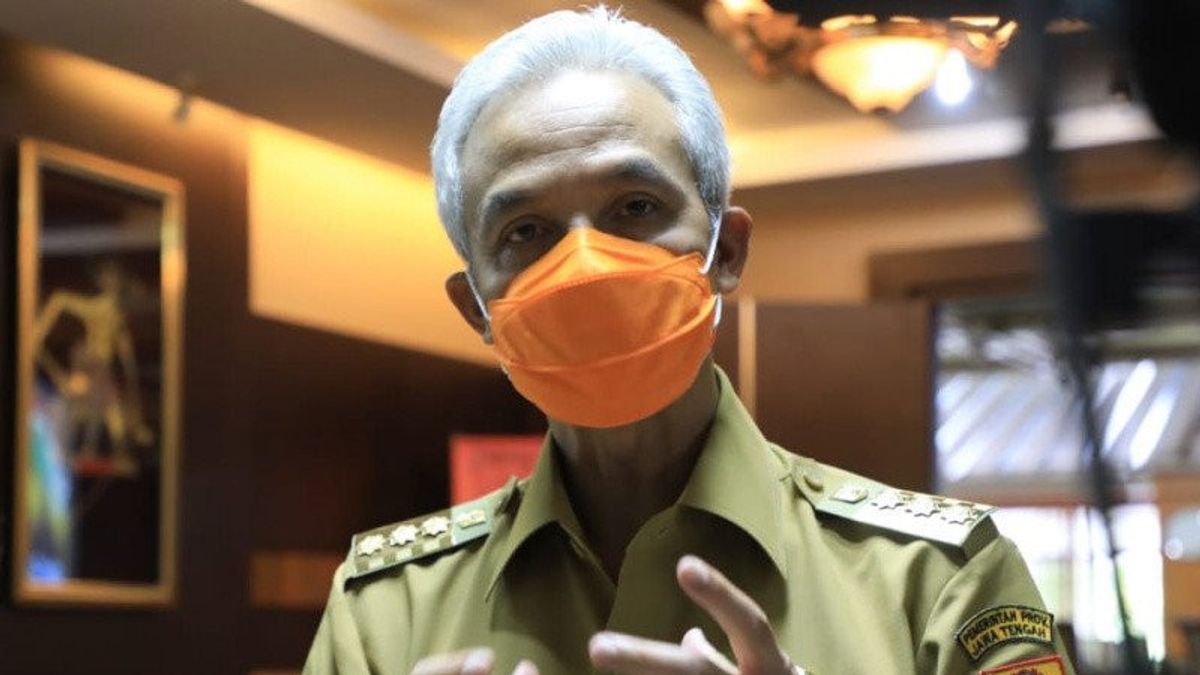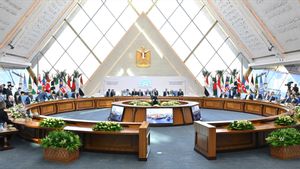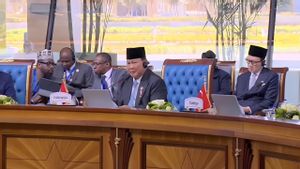JAKARTA - The Central Java Provincial Government together with the Regional Office of the Ministry of Religion only allow the implementation of Eid Al-Fitr prayers in congregations at places of worship in areas that are categorized as green and yellow zones, while still implementing health protocols.
"And we ask for support from all levels of society, including preparing places of worship for Eid prayers, which may be yellow and green zones," said Central Java Governor Ganjar Pranowo, after an online Coordination Meeting on Health Protocol Discipline Enforcement in Semarang, reported by Antara, Tuesday, May 4th.
People in areas that are still in the orange to red zone are prohibited from carrying out Eid prayers at places of worship because they are feared that they will become a cluster of COVID-19 transmission.
In this regard, the Central Java Provincial Government has coordinated with the Central Java Ministry of Religion Regional Office in mapping the areas that are allowed to perform Id prayers in congregation and which are prohibited in places of worship.
Mapping will be carried out in collaboration with the Regional Office of the Ministry of Religion, starting from the smallest levels, namely villages and sub-districts.
"We will map them from the smallest ones, namely villages and sub-districts. For those who are still in the red and orange zone, they are not allowed to hold Eid prayers, like last year's prayers at home, there is no need to debate," he said.
Meanwhile, the Head of the Regional Office of the Ministry of Religion of Central Java, Musta'in Ahmad, explained that for the next few days his party would still map out the areas where the Eid prayer was allowed and not carried out in congregation.
"Yes, in the future we will map which areas are allowed or not to carry out the Eid Al-Fitr prayers in congregation. For those who are allowed to be in the green and yellow categories, the mapping reaches the village and sub-district levels," he said.
Meanwhile, zakat fitrah and others will be carried out without causing crowds and the technical distribution of zakat will involve institutions to distribute to the houses of residents who are entitled to receive it.
"Later, zakat will be given to homes for those who receive it, do not gather at the mosque. It can be cooperative with institutions, such as mosque youth and others," he said.
The English, Chinese, Japanese, Arabic, and French versions are automatically generated by the AI. So there may still be inaccuracies in translating, please always see Indonesian as our main language. (system supported by DigitalSiber.id)










